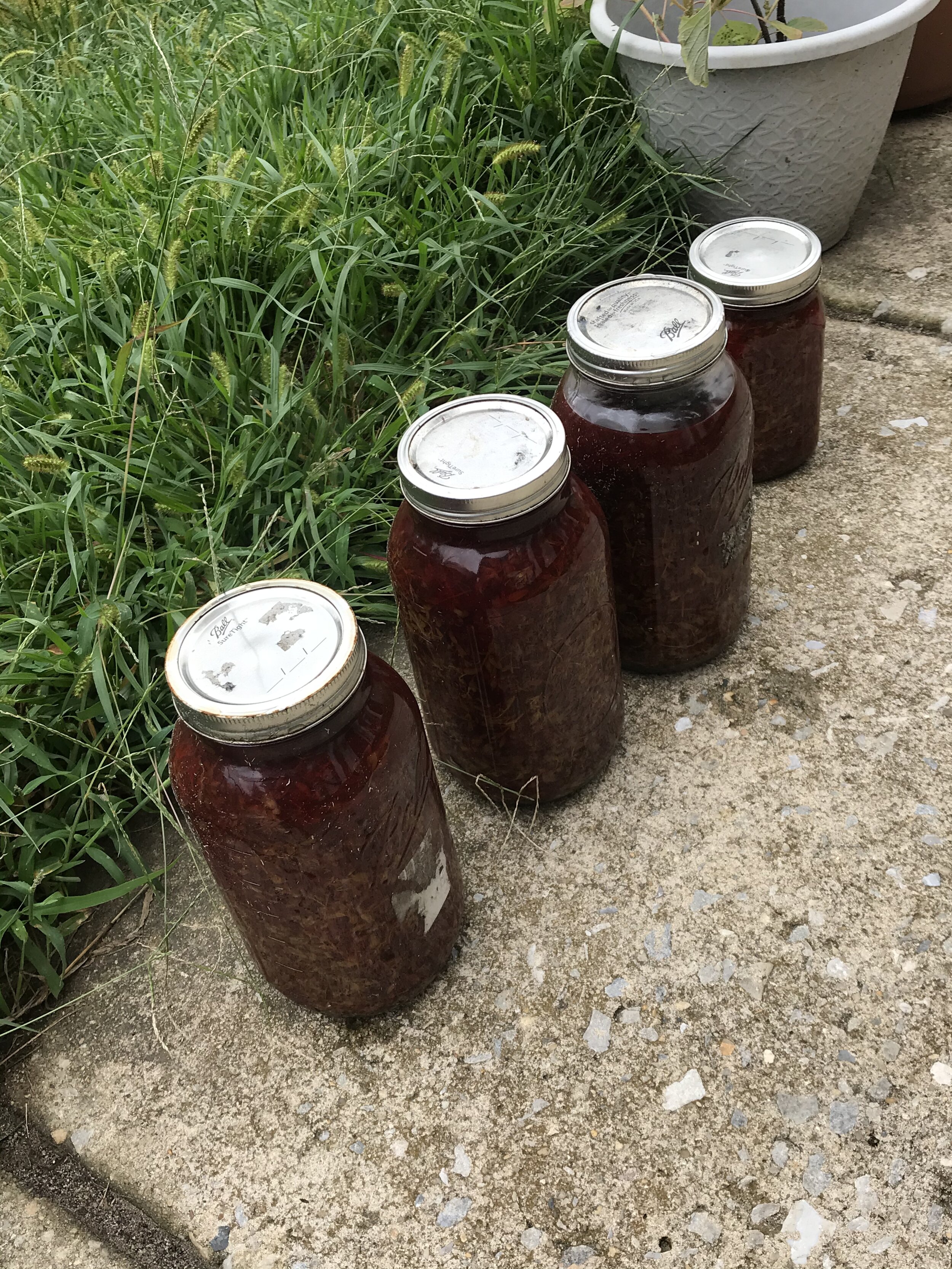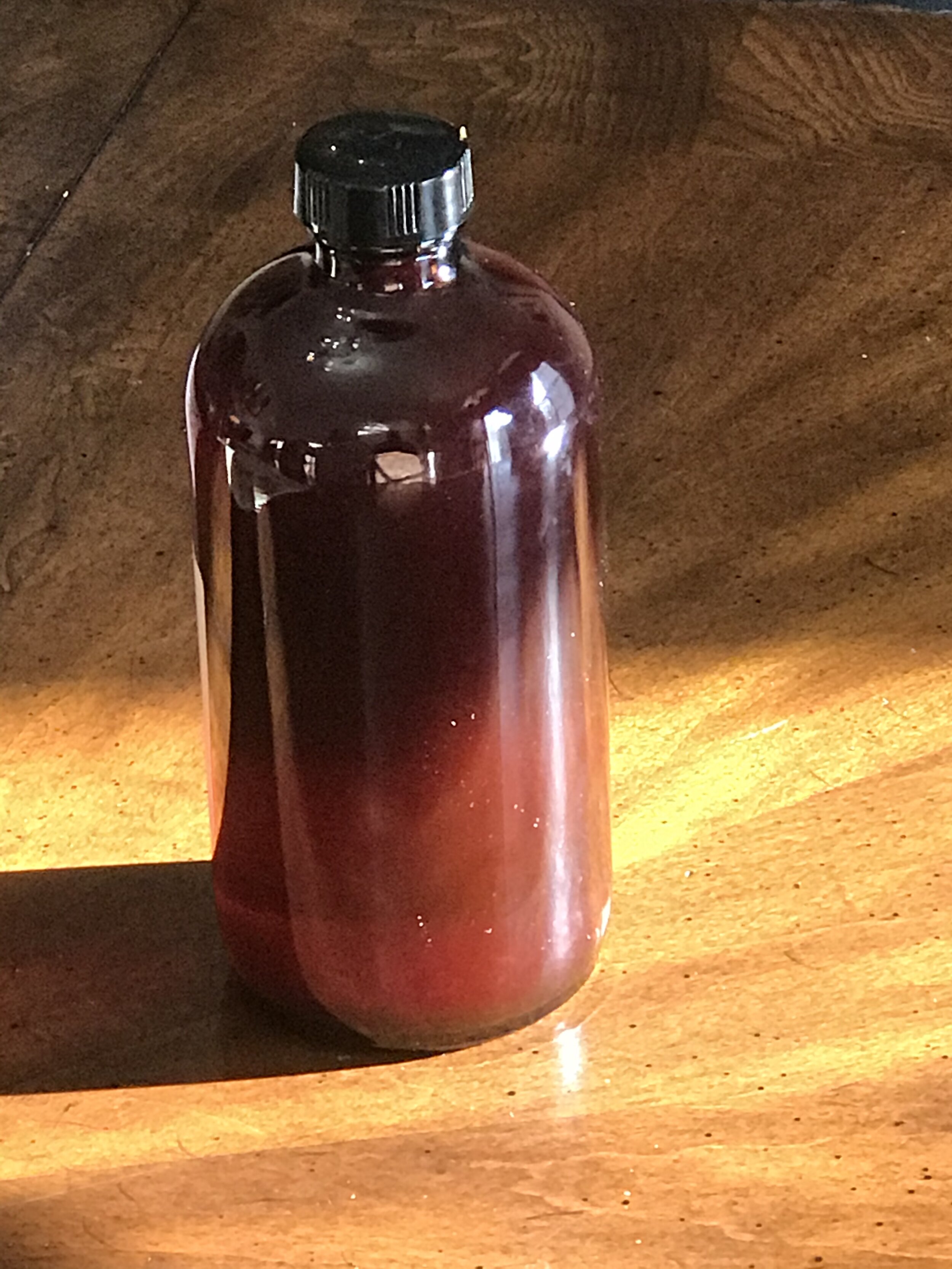
St. Johns’s Wort- Hypericum perforatum
This saintly herb brings happiness and healing internally and externally, for those who seek it out.
What Makes St. John’s Wort Stand Out
I remember when I first saw this herb. I squeezed the yellow flower and my fingers were dyed purplish-red. I took the leaves and was told to place the leaves in front of the sun. I saw the most amazing thing: the leaves exhibited sparkling holes that dazzled colors of blue green and yellow.
On the summer of 2019, I planted some St John’s wort that sprouted but died due to cold weather. I though I lost the herb forever. This 2020 spring, as I was removing the weeds from my garden as saw a familiar herb. Could it be? I placed the leaves in front of the sun and could not believe my eyes: sparkling holes that dazzled different colors! My St. John’s wort returned back to the garden. My heart leaped for joy.
Monograph
Botanical Name: Hypericum perforatum
Common Name: Common St. John’s wort
Family Name: Hypericaceae, Guttiferae
Plant Parts Used: Whole herb above the ground
Constitution: Cool and dry
Taste: Bitter
Key Actions: Anti-inflammatory, anxiolytic, antiviral, antioxidant, astringent, vulnerary, sedative, analgesic, diuretic.
Plant Preparations: Infusion, tincture, infused oil, lotion
Cautionary Pearls: St. john’s wort causes sensitivity to sunlight. Due to possible herb to drug interactions, seeks professional advice in prescribe medication because, taking St. John’s wort internally reduces the concentrations of other medications.
Self-Help Uses: Neuralgia, anxiety, tension, seasonal depression & decreased vitality due to menopause, back pain, bites & stings, cold sores, chicken pox & shingles, fibrositis, sciatica, and rheumatic & arthritic pain, gout, bronchitis, menstrual cramps, sunburn, varicose veins and mild burns, wounds and bruises, tired & aching muscles, sciatica, peptic ulcers.
Related Species: A number of other Hypericum species have a roughly similar medicinal action.
References:
- The Complete Illustrated Holistic Herbal/David Hoffman/Pg. 104
- Encyclopedia of Herbal Medicine/Andrew Chevallier/Pg. 108
- The New Age Herbalist/Richard Mabey/Pg. 61-64
- The Way of Herbs/Michael Tierra/Pg. 197
Pertinent Information
St. John’s wort is a woman’s herb. the herb can relieve the lower vitality that accompanies menopause.
Infuse in olive oil and leaves the herb to bathe in the sun’s rays. St. John’s wort turns the oil red. When applied to wounds and burns, it stimulates tissue repair.
. The oil, extracted by macerating the flowers in vegetable oil, is excellent applied externally for neuralgia and can ease the pain of sciatica.
Externally, St. john’s wort is a valuable healing and anti-inflammatory remedy.
As a nerve pain reliever, St. John’s wort oil is massages into the skin and tissue, relieving toothache, sciatica, and joint pain.
St. John’s wort is also diuretic, helping to eliminate waste materials from the body. Because of this, an infusion is recommended for gout and arthritis.
The herb may relieve the lowered vitality that can accompany the menopause.
History & Research
In medieval Europe, it was considered to protect against ill health and evil influences. Medicinally, it was thought to heal wounds and “down-heartedness.” In the 19th century, the herb fell into disuse, but recent research has brought it back into prominence as a very valuable medicine for nervous exhaustion, depression, and seasonal affective disorder (SAD). St. John’s wort has an ancient reputation for warding off witchcraft which may be due to the plant’s wide range of medicinal uses.
RESEARCH:
Depression: Clinical research from the 1970s onward has established that St. John’s wort is an effective antidepressant. In a recent study in Austria 67% of patients with mild to moderate depression improved when given an extract of the herb.
Hypericin: Hypericin has a marked antiviral activity. It (and to a much lesser extent, the whole herb) appears to act against enveloped viruses, e.g. herpes viruses and HIV, as well as hepatitis B and C. in controlled studies, the hypericins relieved symptoms of anxiety and depression in women probably through a process of monoamineoxidase inhibition.
Safety: St. John’s wort is a very safe medicine. However, the herb does interact with many conventional medicines, reducing their effectiveness and potentially causing serious health problems. Those taking prescribed medication should consult their medical or herbal practitioner before taking St. John’s wort.
References:
- Encyclopedia of Herbal Medicine/Andrew Chevallier/Pg. 108




